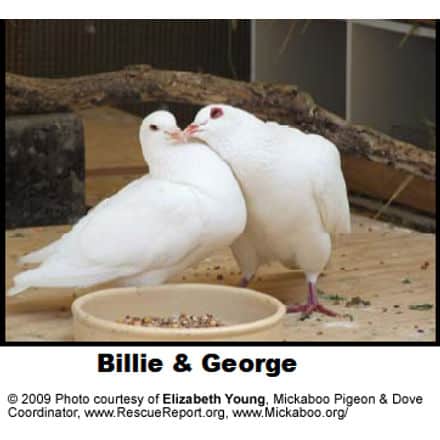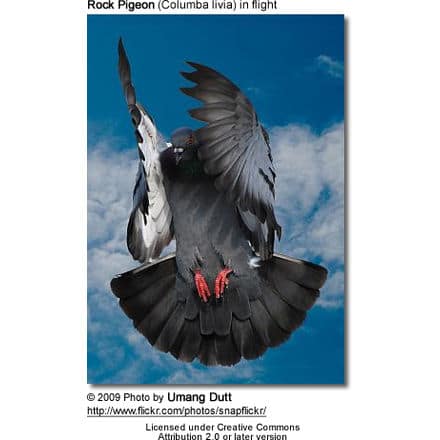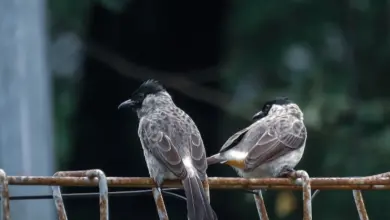Pigeons as Pets
Pigeons as Pets
Pigeons and doves have for centuries been kept for use in competitive breeding, homing and in recent history, racing. However, it is a little known fact that they are also raised as pets.
With good reason, they can be very affectionate and loyal, and millions of enthusiasts have learned to love and appreciate them as companion birds.
Related Web Resources: Pigeon Information … Intelligence & Amazing Facts … Species / Breeds … Breed Photo Gallery
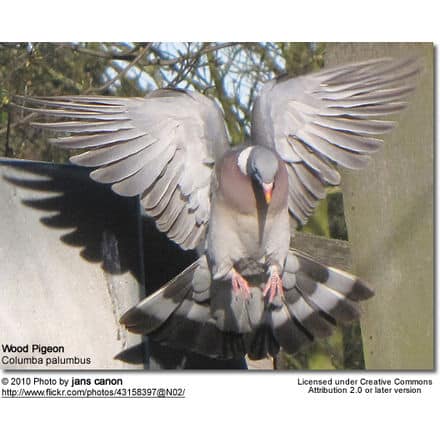
Very few animals have contributed as much as they did to humanity:
These birds can live 20 years or longer; however, most only live 5 to 10 years as their lives are cut short by accident or predation. Of course, well-cared individuals that are in protected environments have a better chance of living a long life.
Considerations before getting a pigeon as pet; Adoptions and Forums
Elizabeth Young, Mickaboo Rescue Coordinator, provides the following info:
These birds need:
- Safe place (indoors or outdoors, protected from weather and predators)
- Room to move (a space that is 3’ high, 3’ wide, 6’ long is good for 1 to 2 birds)
- A good quality diet (info below)
- Easy clean-up floor and /or Pigeon Pants
- Company (either your’s or another pigeon’s)
- Family planning (if you have a mated pair, you need to replace real eggs w/ fake ones)
- Avian Vet Care if they become sick or injured
To adopt, contact Elizabeth at (415) 420-7204
- Andy’s Pet Shop on 1280 The Alameda (at Julian) in San Jose
- Visit Mickaboo Companion Bird Rescue at www.mickaboo.org
Forums:
- www.pigeons.biz/forums (a great web group with lots of info and resources) … www.RescueReport.org
- Rescue, Education, Rehabilitation Forum: http://pij-n-angels.forumotion.net/forum.htm
Housing Options
Loft
The preferred choice is the traditional loft housing method, in which birds are provided a simple sheltered area for the night and can roam about during the daytime. These lofts can accommodate dozens or hundreds – depending on the size of the shelter.
These birds are loyal to their shelter and thanks to their strong homing instinct will return to their lofts each night.
Cage
Birds that are kept indoors need a very large cage that allows them to flap their wings and move around. They prefer small and flat-raised platforms to stick perches. These platforms will also serve well for nesting.
Water
In addition to an appropriate diet (please scroll down for info), they also need fresh water every day both for drinking as well as for bathing to prevent skin-borne illnesses, such as red mites and lice.
Nesting / Breeding:
Breeding-age males will walk along horizontal branches with swelled neck, fluffed out chest feathers, lowered wings and fanned tails; they perform noisy display climbing flights, with the wings cracked like a whiplash, and then gliding down on stiff wings.
The average nest contains two white eggs. The parents share the incubation of the eggs which lasts about 17 days. The hatchlings (known as squabs) are fed on ‘pigeon milk’, a regurgitated milky substance. The squabs fledge when they are about 29 – 35 days old.
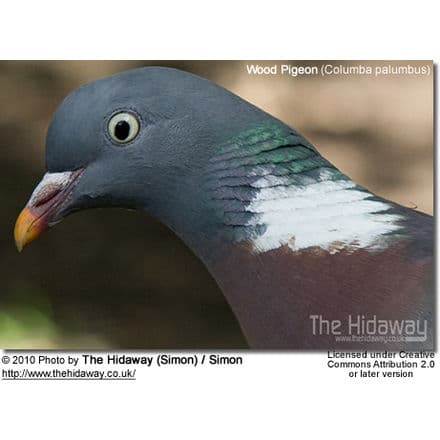
Diet
These birds require proper nutrition to maintain good health.
Commercial dove or pigeon-specific foods are available; but they usually contain many unhealthy fillers and chemicals and should best be avoided unless some mixes can be found that are all natural and properly balanced.
Birds that have access to the outside will often forage on round and fleshy leaves, fruits, berries, seeds, pine nuts, acorns, peas and beans, root crops, winter buds of trees and bushes. They will also pick up the occasional invertebrate (larvae, ants, spiders and small worms). They particularly like young shoots and seedlings.
Basic Pigeon Food: pelleted (only all natural without chemicals) or a mix consisting of seeds, cereals, grains and legumes.
Greens: lettuce, endive, chickweed, clover, watercress, and spinach.
Fruits: berries, apple, pears, etc..
Miscellaneous Bird Foods: game bird crumbles, water soaked dog biscuits, and water or milk soaked bread
Treats: The occasional treats are always eagerly accepted, such as UNSALTED, UNROASTED peanut and hempseeds.
Supplements: Vitamin D3 (for indoor birds), probiotic supplements (to increase positive gastrointestinal bacteria) and grit (to aid in the digestion of solid foods).
Adding apple cider vinegar to their water supply on a weekly basis increase gastrointestinal acidity, thus preventing certain pigeon-borne diseases.

Pigeon Diseases
Signs of illness:
- Weakness / Sleeping more than usual
- Loss of appetite
- Rotting or bruised-looking skin, milky eyes
- Thinned, less-fluffed feathers
Sick bird care should be provided until a vet can be consulted.
Calls / Vocalizations
Its call is a pleasant cooing (coo-coo-coo-cu-cu). Flocks take off with a loud clattering.
When breeding, they emit husky ‘hooh-hrooo‘ calls.

